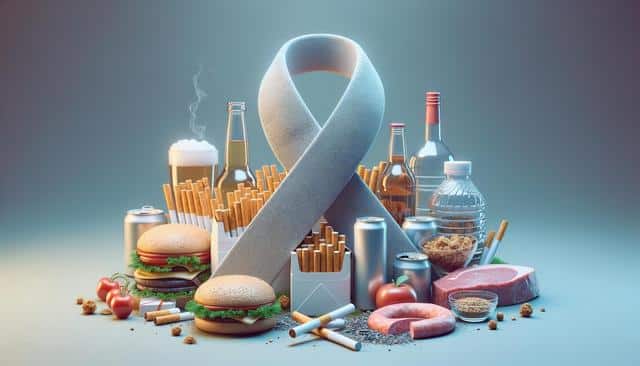
Warning Signs & Habits That Might Increase Your Cancer Risk
Understanding Lifestyle Factors That May Contribute to Cancer
There is growing evidence that certain lifestyle habits may increase the likelihood of developing cancer over time. While not every case of cancer is preventable, being aware of potential risks and making informed decisions can play a role in lowering your overall chances. Many everyday choices, from diet to physical activity levels, can influence long-term health outcomes.
For instance, tobacco use remains one of the leading preventable causes of cancer. Additionally, excessive alcohol consumption, long-term exposure to UV radiation, and lack of physical activity are commonly associated with increased cancer risk. Obesity has also been linked to several types of cancers, making weight management an important consideration.
Diet plays a significant role in cancer prevention. Some research suggests that a high intake of processed and red meats, sugary beverages, and certain preservatives might be among the foods that cause cancer. To reduce risk, consider limiting:
- Highly processed foods
- Foods with artificial additives
- Excessive alcohol
- Excess salt and sugar
By making small, consistent changes to daily habits, individuals can potentially reduce their exposure to known carcinogens and support overall well-being.
Recognizing Early Cancer Warning Signs
Identifying cancer warning signs early is vital for improving the chances of successful treatment. While many symptoms may be caused by less serious conditions, being vigilant about changes in your body can help with early detection. Some cancer types manifest in subtle ways, while others may present more obvious symptoms.
Common signs to be aware of include:
- Unexplained weight loss
- Persistent fatigue or weakness
- Chronic pain in specific areas
- Skin changes, including new or changing moles
- Unusual lumps or swelling
Other signs and symptoms of cancer may include changes in bowel or bladder habits, difficulty swallowing, or unexplained bleeding. While these symptoms do not always indicate cancer, it’s important to consult a healthcare provider if they persist or worsen over time.
By staying alert to these potential indicators, individuals can take proactive steps toward early diagnosis and intervention, which may significantly influence treatment outcomes.
The Role of Diet and Nutrition in Cancer Risk
Nutrition is a powerful tool in supporting long-term health and may contribute to cancer prevention. A balanced diet rich in fruits, vegetables, whole grains, and lean proteins can provide essential nutrients that help the body repair and protect itself. Conversely, some dietary patterns may contribute to inflammation or expose the body to harmful substances.
Several foods that cause cancer have been identified through research, particularly those involving high levels of processing or chemical additives. Examples include:
- Charred or grilled meats
- Foods preserved with nitrates and nitrites
- Highly refined carbohydrates and sugars
- Excessive intake of saturated fats
Limiting these foods and opting for antioxidant-rich options such as berries, leafy greens, and nuts can support the body’s natural defenses. Hydration and maintaining a healthy gut microbiome are also important elements of a cancer-conscious diet.
Although no single food guarantees protection or causes cancer on its own, an overall dietary pattern that emphasizes variety, moderation, and nutrient density can contribute positively to long-term health.
Environmental and Occupational Exposure Risks
Cancer risk can also be influenced by environmental and occupational exposures. Individuals working in certain industries may come into contact with carcinogens through inhalation or skin contact. Common examples include asbestos, radon, benzene, and prolonged exposure to industrial solvents or pesticides.
Outside of the workplace, exposure to air pollution, secondhand smoke, and contaminated water can also be contributors. While it’s not always possible to avoid these exposures entirely, certain precautions can help reduce risk, such as:
- Wearing protective equipment in hazardous work environments
- Ensuring proper ventilation in enclosed spaces
- Testing homes for radon, especially in high-risk regions
- Using non-toxic household products when available
Understanding these environmental factors and taking preventive action where possible can support efforts to minimize long-term cancer risks.
Daily Habits That May Influence Cancer Risk
Daily routines can have a cumulative effect on health and may either increase or decrease cancer risk depending on the choices made. Smoking, for example, is a well-known risk factor for multiple cancer types, but other seemingly minor habits can also play a role when practiced over time.
Sleep patterns, stress levels, and sun exposure are all areas where habitual behavior matters. Chronic stress and lack of sleep may weaken the immune system, and excessive sun exposure without protection increases the risk of skin cancer. Habits that may increase cancer risk include:
- Skipping regular health screenings
- Using tanning beds
- Ignoring persistent health changes or symptoms
- Prolonged sedentary behavior
On the other hand, adopting positive habits such as engaging in regular physical activity, practicing mindfulness, and maintaining a consistent sleep routine can support immune function and overall resilience.
Monitoring one’s daily behavior and making conscious lifestyle adjustments can be a valuable step in managing long-term health risks related to cancer.
Conclusion: Being Proactive About Cancer Awareness
While not all cancers are preventable, understanding the factors that influence risk can empower individuals to make informed choices. Paying attention to cancer warning signs, maintaining a balanced diet, and avoiding known foods that cause cancer are all practical steps toward better health. Likewise, recognizing early signs and symptoms of cancer and seeking timely medical advice can make a meaningful difference in diagnosis and outcomes.
By staying informed and proactive, individuals can take charge of their lifestyle and environment in ways that promote long-term wellness and reduce potential cancer risks.


